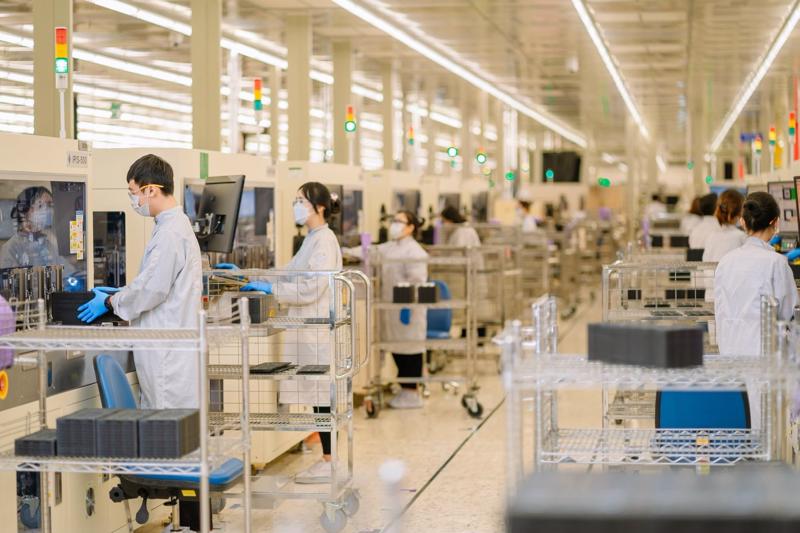Prime Minister urges semiconductor, AI training boost
This initiative will have a positive impact on the skills of the workforce and the positioning of Vietnam as a competitive player in the global high-tech sector.
Vietnam's Prime Minister Pham Minh Chinh, in a recently signed dispatch, urged the submission of a final proposal for semiconductor human resources development with a vision to 2030 and a strategic outlook to 2050.
This initiative is part of a broader strategy to increase the quality of workforce training in critical areas such as semiconductor technology, artificial intelligence (AI), and cloud computing, which are increasingly important in today's technology-driven economy.
| The electronic semiconductor assembly and testing plant of Intel Products Vietnam Co., Ltd. Photo: IPV |
In the document, he instructed the Minister of Education and Training to create specialized departments dedicated to training and research in these fields in both public and private universities. This approach aims not only to improve the quality of education, but also to create a pool of highly skilled professionals who can meet the growing demands of the booming semiconductor industry.
Chinh also called for a review and modernization of curricula, as well as training for teachers and students in relevant fields. He emphasized the importance of incorporating technology, especially AI, into teaching practices and advocated for stronger partnerships between educational institutions and businesses.
The Prime Minister has instructed the Minister of Planning and Investment to expedite the completion of a proposal for the development of human resources in the semiconductor industry through 2030, including AI and cloud computing.
This proposal aims to foster the creation of ecosystems and innovation centers within the high-tech sector, facilitating research and development efforts. The emergence of these institutions will promote innovation and attract capital to the semiconductor industry, a sector with significant development potential.
The Ministry of Science and Technology should prioritize research programs for talent development and create mechanisms to attract foreign expertise in higher education. This strategy will improve the quality of research and education, and support the sustainable growth of Vietnam's semiconductor industry.
The Prime Minister has urged provincial and municipal leaders to actively seek investment and support universities in developing high-quality human resources. Local governments are encouraged to promote cooperation between the state, educational institutions, and enterprises to improve the effectiveness of education.
The Prime Minister has urged provincial and municipal leaders to actively seek investment and support universities in developing high-quality human resources. Local governments are encouraged to promote cooperation between the state, educational institutions, and enterprises to improve the effectiveness of education.
His call to action is crucial not only for elevating the quality of human resources, but also for promoting the sustainable development of Vietnam's high-tech industry.












